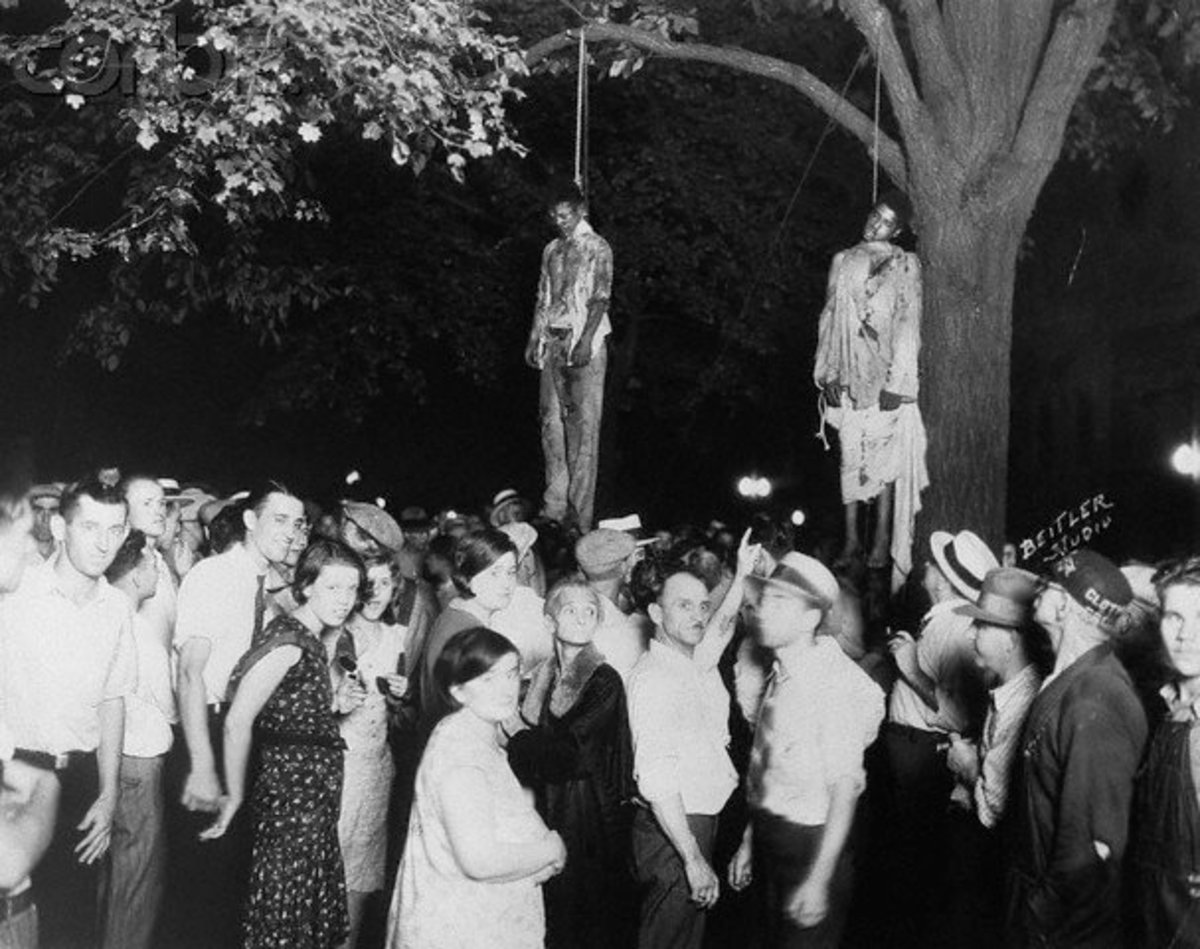Education Should Deliver Us from Racism and Trumpism

9 Aug 1930, Marion, Indiana, USA — After being accused of murdering Claude Deeter, 23 and assaulting his girlfriend Mary Ball, 19 two young African-American men are taken from the Grand County Jail and lynched in the public square. Photographed by Lawrence Beitler. — Image by © Bettmann/CORBIS
In recent weeks I’ve seen three films and the first episode of Ken Burns’s The Civil War, all of which reminded me of our terrible history of racism. The films were the 2016 Birth of a Nation, depicting the slave Nat Turner’s rebellion in 1831; Loving, about the black woman and white man (the Lovings) whose right to marriage in Virginia was upheld by the Supreme Court in 1967, thereby striking down state laws banning interracial marriage: and the documentary I Am Not Your Negro, which consists mainly of scenes of James Baldwin speaking, many of his words taken from his unfinished work Remember This House, begun in 1979. The first episode of Burns’ nine-part series (available on Netflix) deals with the causes of the Civil War. In it the narrator (David McCullough) reminds us of the terrible conditions of slave quarters and the fact that only four out of 100 slaves lived to be 60.
In discussing U. S. racism over the past half century, especially with opponents of Affirmative Action (initiated in 1965) I have often heard the following words, “Slavery has been over for more than a century.” And, “I didn’t enslave black people. I can’t be held responsible for what white people did more than a century ago.” I have also often heard variations of the following statements used in the 2016 American National Election Study (ANES) to sample racial attitudes: “Irish, Italians, Jewish, and many other minorities overcame prejudice and worked their way up. Blacks should do the same without any special favors,” and “It’s really a matter of trying hard enough; if blacks would only try harder that would be as well off as whites.”
True enough that slavery has been over for a long time. But its evil effects and racism continue to live on.
True enough that slavery has been over for a long time. But its evil effects and racism continue to live on.
True enough that slavery has been over for a long time. But its evil effects and racism continue to live on. In our own lifetimes, my wife, Nancy, and I, both children of white, blue-collar fathers, have seen plenty of it. Nancy grew up in Marion, Indiana, where in 1930, a mere Education Should Deliver Us from Racism and Trumpism - LA Progressive:
